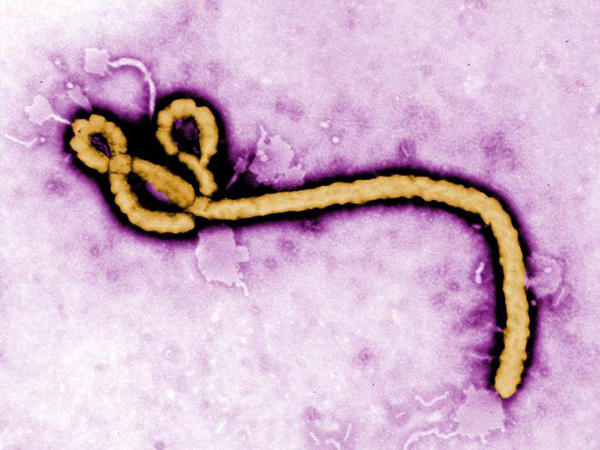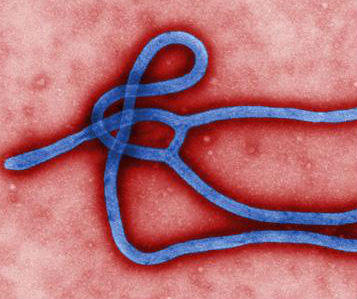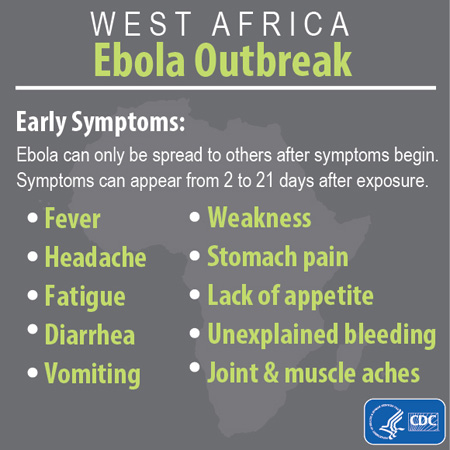 A microscopic view of the Ebola virus. Credit/Frederick A. Murphy, Centers For Disease Control And Prevention
A microscopic view of the Ebola virus. Credit/Frederick A. Murphy, Centers For Disease Control And Prevention
What You Should Know About The Virus
What is Ebola?
Ebola is a disease caused by infection with any of the five identified Ebola virus species, the Centers for Disease Control and Prevention says. It’s rare, but deadly. Four of these species can cause the disease in humans.

A microscopic view of the Ebola virus. Photo/U.S. Centers For Disease Control And Prevention
Those four species are:
- Ebola virus (Zaire ebolavirus)
- Sudan virus (Sudan ebolavirus)
- Taï Forest virus (Taï Forest ebolavirus, formerly Côte d’Ivoire ebolavirus)
- Bundibugyo virus (Bundibugyo ebolavirus, only affecting non-human primates)
What About Ebola’s History?
“Ebola was first discovered in 1976 near the Ebola River in what is now the Democratic Republic of the Congo. Since then, outbreaks have appeared sporadically in Africa,” according to the CDC.
Researchers believe Ebola is an animal-borne virus — and bats are most likely the reservoir host. According to the CDC, four of the five Ebola strains occur in an animal native to Africa.

Credit/Centers for Disease Control and Prevention
The largest outbreak of Ebola was in West Africa in 2014. Thousands of people died. Unaware he had Ebola, Thomas Eric Duncan traveled from Liberia to the United States in September 2014. He was diagnosed in a Dallas hospital later that month. He died in October 2014.
How Is Ebola Spread?
Ebola is transmitted through the direct contact of bodily fluids. The CDC lists these examples:
- blood or bodily fluids (including urine, saliva, sweat, feces, vomit, breast milk, and semen) of a person who is sick with or has died from Ebola
- objects (like needles and syringes) that have been contaminated with bodily fluids from a person who is sick with Ebola or the body of a person who has died from Ebola
- handling infected fruit bats or primates, such as apes and monkeys (In Africa, Ebola can spread from handling bushmeat or wild animals hunted for food)
- possibly from sexual contact with semen from a man who has recovered from Ebola
How Is Ebola Not Spread?
You can’t get Ebola from:
- a handshake or hug
- mosquitoes
- household pets
- through the air, such as a cough or sneeze
- food and drink imported from West Africa
What Are The Symptoms?
Ebola is detected in the blood only after the onset of certain symptoms.

Credit/CDC
How Do You Treat Ebola?
At the moment, there is no FDA-approved vaccine or drug to treat Ebola. Symptoms are treated as they appear, according to the CDC. Treatment includes providing IV fluids, maintaining a patient’s oxygen and blood pressure and treating infections as they occur.
There is a trial vaccine under development in Sierra Leone. Read more about STRIVE.

